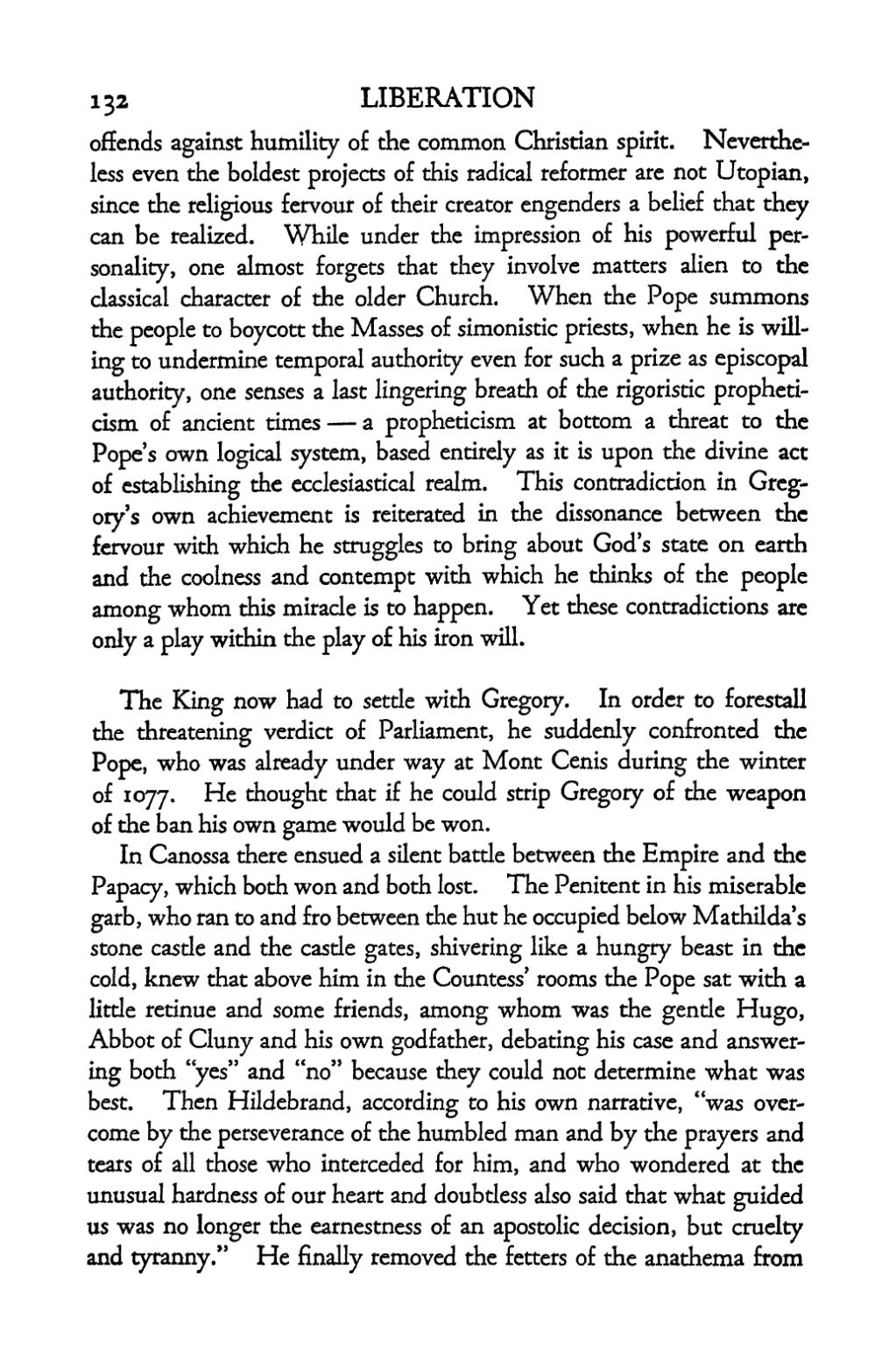3 2 LIBERATION
offends against humility of the common Christian spirit. Neverthe- less even the boldest projects of this radical reformer are not Utopian, since the religious fervour of their creator engenders a belief that they can be realized. While under the impression of his powerful per- sonality, one almost forgets that they involve matters alien to the classical character of the older Church. When the Pope summons the people to boycott the Masses of simonistic priests, when he is will- ing to undermine temporal authority even for such a prize as episcopal authority, one senses a last lingering breath of the rigoristic propheti- cism of ancient times a propheticism at bottom a threat to the Pope's own logical system, based entirely as it is upon the divine act of establishing the ecclesiastical realm. This contradiction in Greg- ory's own achievement is reiterated in the dissonance between the fervour with which he struggles to bring about God's state on earth and the coolness and contempt with which he thinks of the people among whom this miracle is to happen. Yet these contradictions arc only a play within the play of his iron will.
The King now had to settle with Gregory. In order to forestall the threatening verdict of Parliament, he suddenly confronted the Pope, who was already under way at Mont Cenis during the winter of 1077, He thought that if he could strip Gregory of the weapon of the ban his own game would be won.
In Canossa there ensued a silent battle between the Empire and the Papacy, which both won and both lost. The Penitent in his miserable garb, who ran to and fro between the hut he occupied below Mathilda's stone castle and the castle gates, shivering like a hungry beast in the cold, knew that above him in the Countess' rooms the Pope sat with a little retinue and some friends, among whom was the gentle Hugo, Abbot of Cluny and his own godfather, debating his case and answer- ing both "yes" and "no" because they could not determine what was best. Then Hildebrand, according to his own narrative, "was over- come by the perseverance of the humbled man and by the prayers and tears of all those who interceded for him, and who wondered at the unusual hardness of our heart and doubtless also said that what guided us was no longer the earnestness of an apostolic decision, but cruelty and tyranny." He finally removed the fetters of the anathema from
THE
